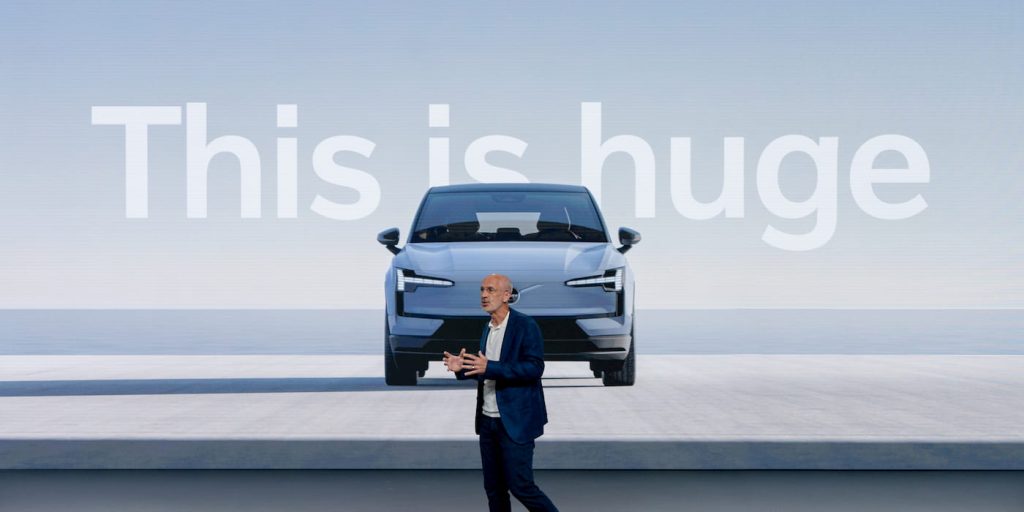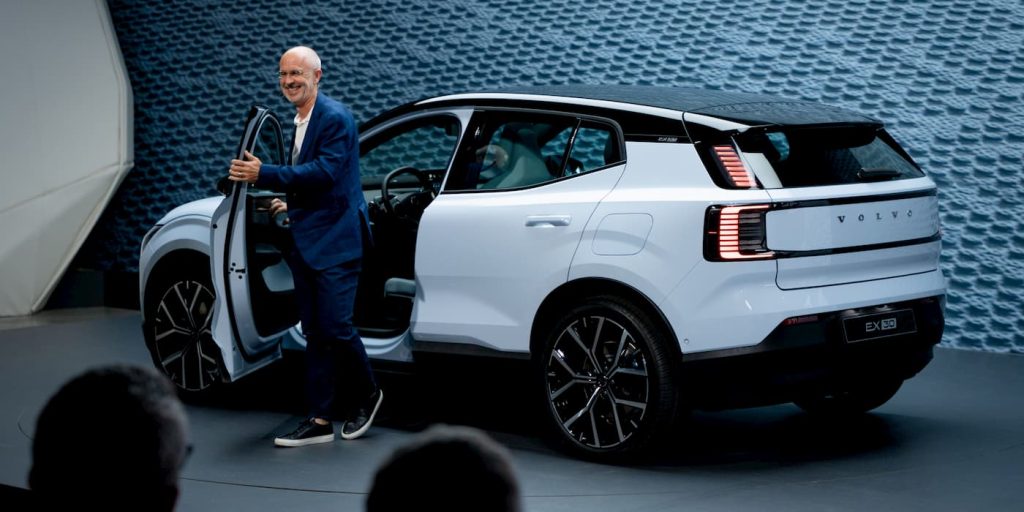
Volvo Cars is preparing to go all-electric by 2030. To do so, Volvo is shifting US and Canadian operations as part of an $88 million restructuring effort to boost the brand’s competitiveness in the future.
The new initiative, codenamed CORE+, is “all-encompassing,” according to Volvo Car USA and Canada President Michael Cottone.
Volvo’s strategy aims to tighten costs, enhance efficiency, and update its workforce for an all-EV future.
Cottone told Automotive News, “There’s not any area of the business that is not impacted.” According to sources, Volvo is trimming over 10% of its white-collar workforce in the US and Canada. It will also downsize its regional personnel by offering early retirement.
According to a source, the Swedish automaker is “turning over every rock they can to make themselves more efficient.” The reduction is expected to take place by early October.
Volvo Cars USA spokesperson Russel Datz confirmed the company is scaling back operations at its Silicon Valley Tech Center, saying it will maintain a “small presence.”
The move comes after Volvo cut roughly 1,300 jobs in Sweden in May as part of a broader restructuring effort.

Volvo shifts its workforce for an all-EV future
Volvo plans to become a fully electric car brand by 2030. By 2025, Volvo wants pure EV models to account for half its expected 1.2 million sales.
The Swedish EV maker plans to launch a new electric model each year to build its lineup. With that comes phasing out internal combustion engines and even hybrids.
The transition requires a different skill set. Cottone said the CORE+ strategy will establish a “more focused Volvo Cars” while benefitting retailers.

Volvo Cars CEO Jim Rowan mentioned the company was looking to upskill its workforce in the new EV era. He said, “We need to open some white space to bring in the skills that we need for that future.”
The Swedish EV maker is looking to hire experts to assist in the transition, including those with knowledge of battery chemistry, inverters, and silicon carbide technology.

Volvo’s restructuring efforts will not affect its global production network, including its assembly plant in Ridgeville, South Carolina. Rowan said in July, “We need the output from the factories to keep up with demand, which was 50 percent higher than last year.”
Cottone ensures the strategy will help fuel the automaker’s transition to an all-EV future with the funds and workforce needed to get the job done.
Electrek’s Take
Most legacy automakers have introduced restructuring plans at this point to transition the brands into the new electric era.
From Volvo’s comments, the company is upskilling its workforce to maintain competitiveness as the industry moves to electric.
Meanwhile, the company opened a new tech hub in Singapore this week to support its in-house tech and software development capabilities. The announcement comes after Volvo added a tech hub in Krakow, Poland, earlier this year.
Both sites aim to optimize their global tech strategy while attracting “the best talent from around the world.” Volvo also has tech hubs in Stockholm and Lund in Sweden and Bangalore, India, with engineering centers in Shanghai, China, and Gothenburg, Sweden.
Volvo is gearing up for a global EV expansion, and getting the right personnel is critical for the transition.
In June, the Swedish EV maker unveiled its smallest and cheapest EV, the EX30, which is expected to be a game changer for Volvo starting at $35,000. It will join the flagship EX90, revealed last November, in the automaker’s all-electric lineup.
Author: Peter Johnson
Source: Electrek



